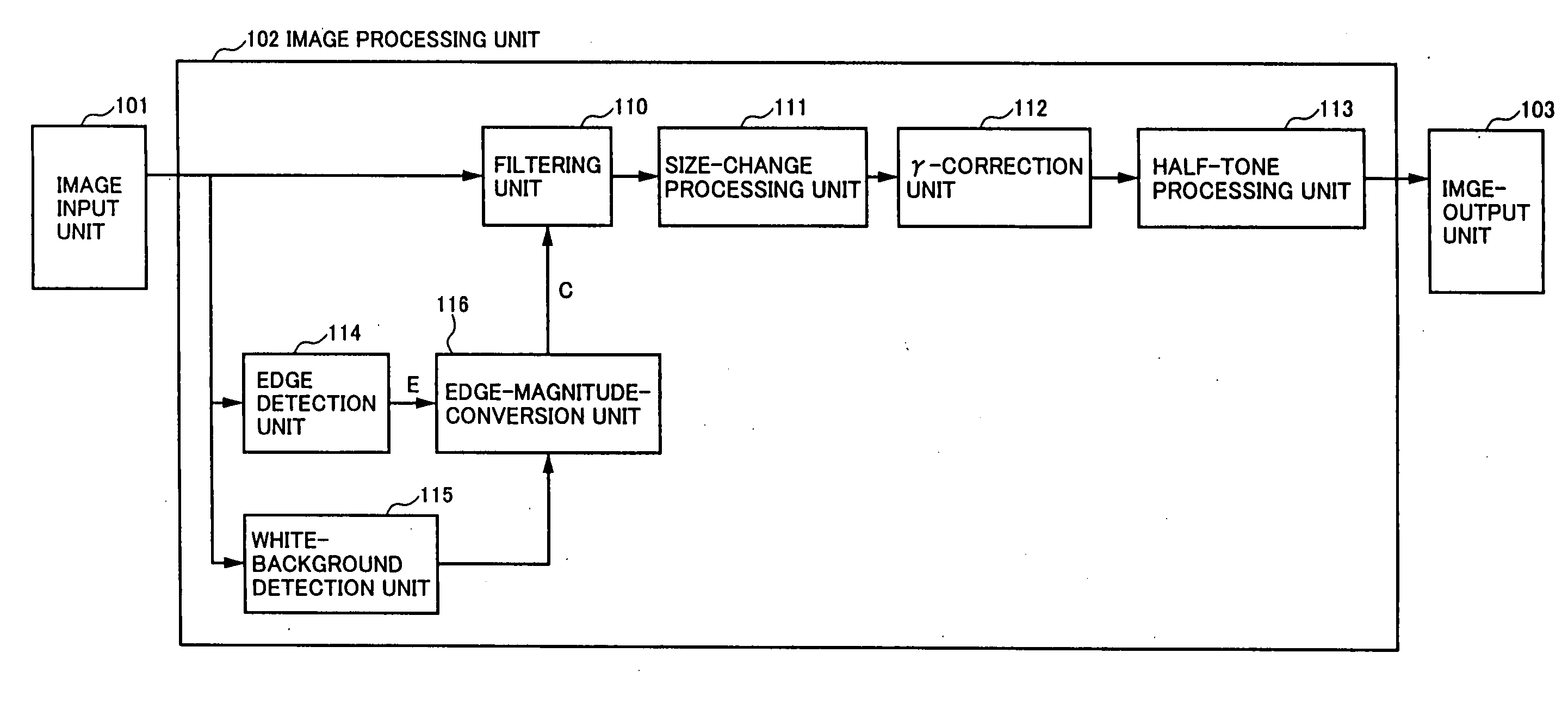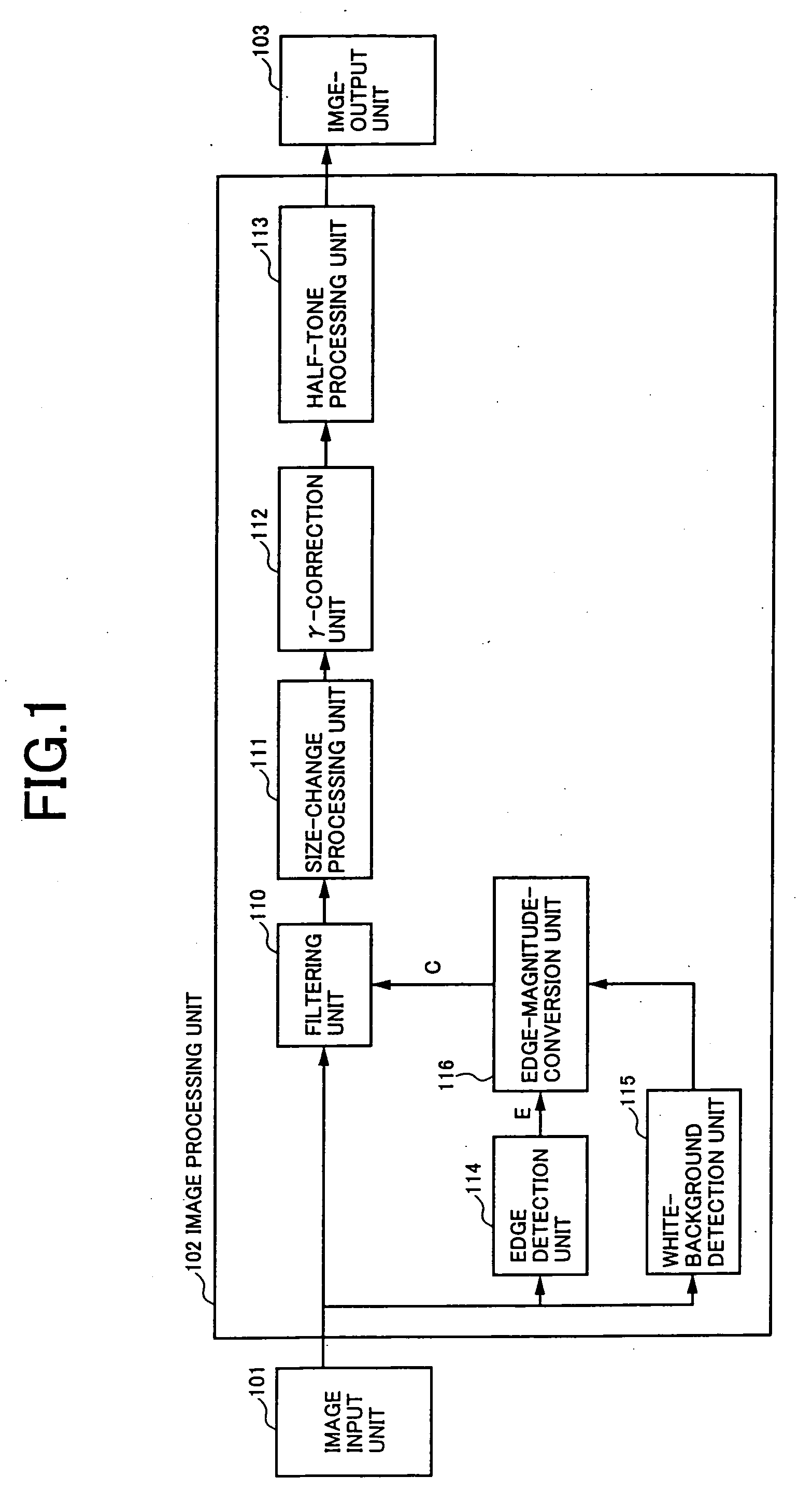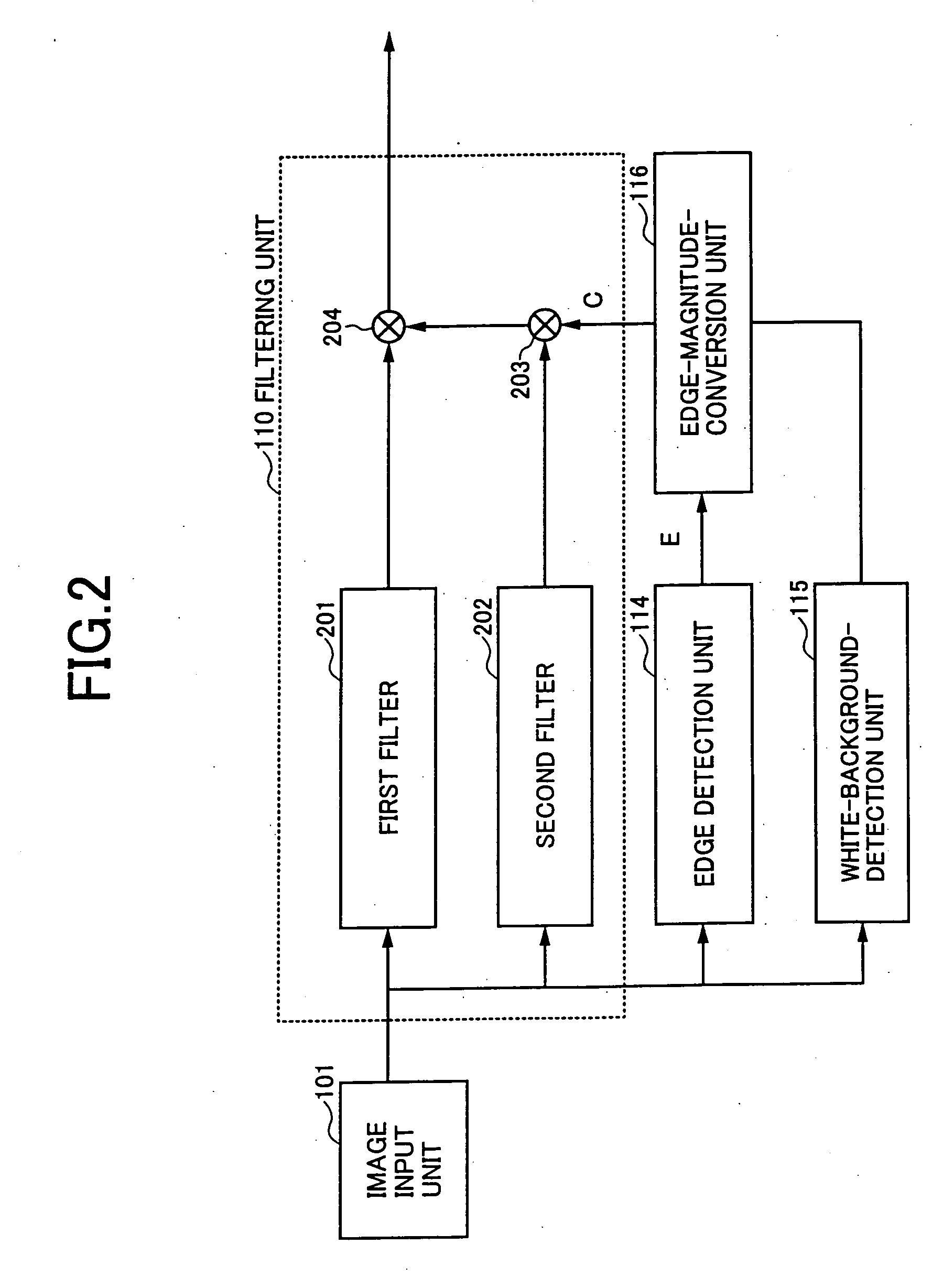Image processing based on degree of white-background likeliness
a technology of image processing and white background, applied in image enhancement, image analysis, instruments, etc., can solve the problems of insufficient image-reproduction quality of image processing devices in areas, poor quality of letters in light tone, and broken fine lines from place to place, so as to improve the reproduction quality of letters and simple configuration
- Summary
- Abstract
- Description
- Claims
- Application Information
AI Technical Summary
Benefits of technology
Problems solved by technology
Method used
Image
Examples
first embodiment
[0072]FIG. 1 is a block diagram of an image-processing device according to a first embodiment of the present invention.
[0073] In FIG. 1, an image input unit 101 reads original documents, and supplies digitized image signals to a filtering unit 110, an edge detection unit 114, and a white-background detection unit 115 provided in an image processing unit 102. When the image signals are received in the image processing-unit 102, the filtering unit 110 applies a filtering process to convert frequency characteristics of the image in response to an edge magnitude (filter factor C) supplied from an edge-magnitude-conversion unit 116. A size-change processing unit 111 enlarges or makes smaller image sizes according to a specified size-change factor by electrically processing image signals. Resulting signals are supplied to a gamma-correction unit 112.
[0074] The gamma-correction unit 112 converts gray-level characteristics into desired gray-level characteristics with respect to a data pat...
second embodiment
[0099] In the following, a second embodiment of the present invention will be described.
[0100]FIG. 15 is a block diagram of an image-processing device according to a second embodiment of the present invention. In FIG. 15, the same elements as those of FIG. 1 are referred to by the same numerals.
[0101] In FIG. 15, the image input unit 101 reads original documents, and supplies digitized image signals to a filtering unit 110a and the white-background detection unit 115 of an image processing unit 102a. When the image signals are received from the image input unit 101, the filtering unit 110a transforms frequency characteristics of the image, and the size-change processing unit 111 enlarges or makes smaller image sizes according to a specified size-change factor by electrically processing image signals.
[0102] A gamma-correction unit 112a converts gray-level characteristics into desired gray-level characteristics with respect to a data path from the original image to the output image...
third embodiment
[0139] In the first and second embodiments, a binary-wise check is made to decide whether an area of interest is a white-background area or non-white-background area, and a two-way choice is made with respect to processing characteristics of filtering processes and conversion characteristics of gamma correction. Namely, a check is made in a binary manner to decide whether a given area is a white-background area or a non-white-background area, ignoring grayness between white and black as to how close to white a given area is in terms of whiteness thereof. Such binary-wise processing tends to lack sufficient stability. For example, if a single pixel is marked as a white-background area in areas where all pixels should be marked as non-white-background areas, then, the white-background area is expanded around this single pixel, thereby creating a white-background area having a substantial area size.
[0140] In consideration of this, a third embodiment of the present invention detects a ...
PUM
 Login to View More
Login to View More Abstract
Description
Claims
Application Information
 Login to View More
Login to View More - R&D
- Intellectual Property
- Life Sciences
- Materials
- Tech Scout
- Unparalleled Data Quality
- Higher Quality Content
- 60% Fewer Hallucinations
Browse by: Latest US Patents, China's latest patents, Technical Efficacy Thesaurus, Application Domain, Technology Topic, Popular Technical Reports.
© 2025 PatSnap. All rights reserved.Legal|Privacy policy|Modern Slavery Act Transparency Statement|Sitemap|About US| Contact US: help@patsnap.com



